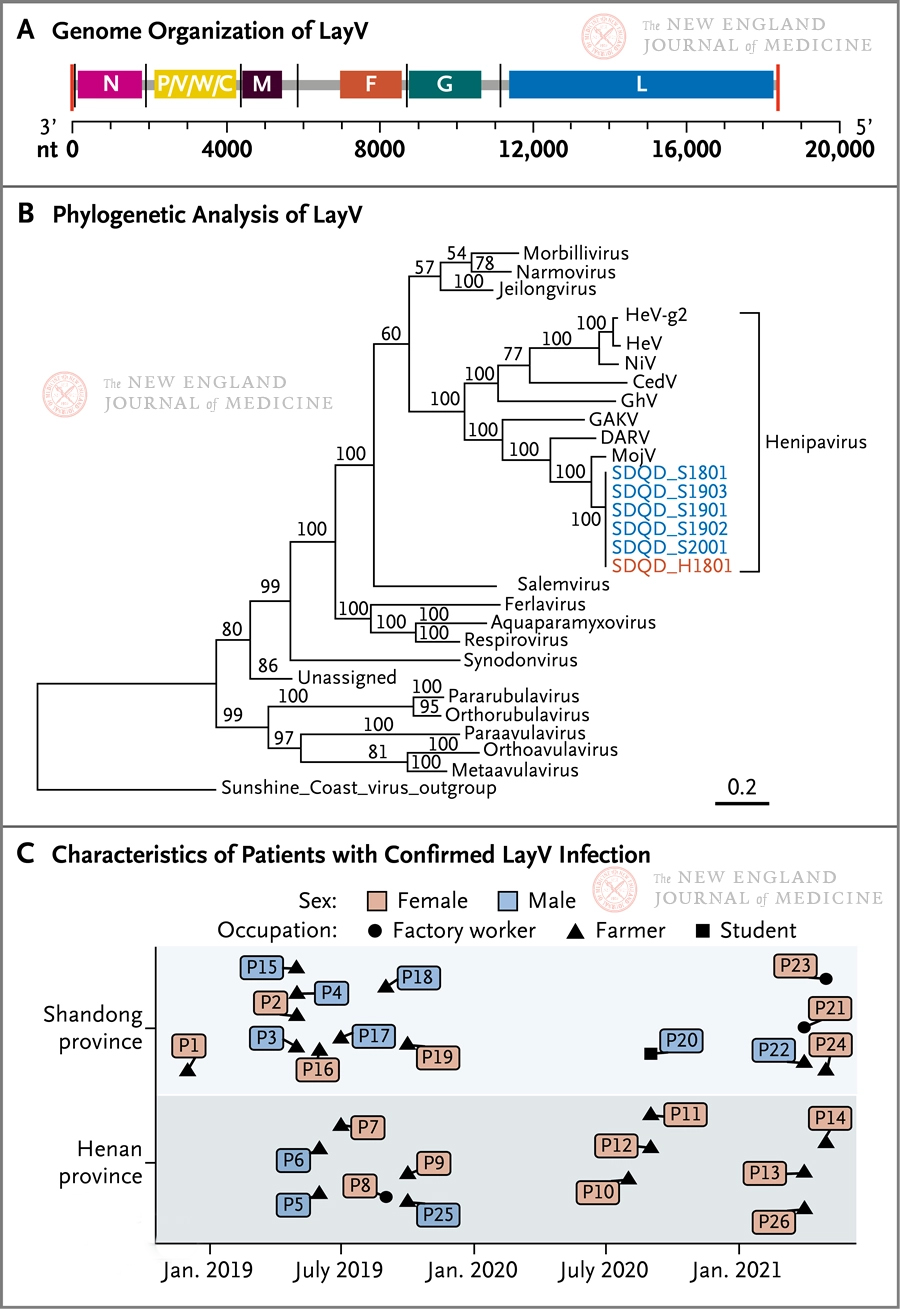

Scientists discovered Langya henipavirus
Langya henipavirus (layv), also known as wolf tooth henipavirus, is a new animal derived henipavirus found in Shandong and Henan provinces of China that can infect humans. Nipah virus was first confirmed during an outbreak among Malaysian pig farmers in 1999, and then 12 outbreaks occurred in South Asia.
Thirty five patients with acute layv infection were found in Shandong and Henan, China, of which 26 were only infected with layv (no other pathogens were detected). The clinical symptoms of these 26 patients were fever, fatigue, cough, anorexia, myalgia, nausea, headache, vomiting, accompanied by thrombocytopenia, leukopenia, impaired liver function and renal function.
The genome of layv is composed of 18402 nucleotides, and its genome organization is the same as that of other Henipa viruses. On the phylogenetic tree, it is found that this virus is a new strain, and in terms of evolutionary relationship, it is most related to the Henipa virus previously found in Mojiang, Yunnan.

In the serological study of domestic animals, it was found that the serum antibodies of goats (3 / 168 [2%]) and dogs (4 / 79 [5%]) were positive. Among the 25 wild small mammals studied, layv RNA was mainly detected in shrews (71 / 262 [27%]), which suggests that shrews may be the natural host of layv. Scientists believe that this finding deserves further research to better understand the relevant human diseases.

